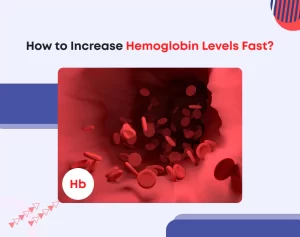
Side Effects of Chemotherapy: What You Need to Know
Chemotherapy is a well-known cure for cancer that may help reduce the volume of cancer cells. Nonetheless, it may be associated with several complications that are known to affect the patient’s reaction. There are likely to be slight symptoms, and in others, severe forms of symptoms may arise. Knowing these side effects can assist you or your relative or friend by preparing them for these effects well in advance. This blog will introduce the side effects of chemotherapy, why they occur, and how they can be managed using practical advice.
Why Chemotherapy Causes Side Effects?
Chemotherapy is done to destroy the fast-growing cancer cells, but they also affect the normal cells of the body. This is why chemo can cause side effects in parts of the body which has tissues. Why? Because they divide rapidly, including the digestive system, skin, hair, and bone marrow. The severity and type of side effects depend on the type of chemo, the dosage, and the person’s overall health.
Common Side Effects of Chemotherapy
Take a closer look at a few of the most prevalent adverse effects. Each person may develop different symptoms and the common ones are as listed below:
1. Fatigue
Fatigue is reported in more cases, mostly with cancer patients who decide to undergo chemotherapy. Here’s how to manage fatigue:
- Stay Hydrated: Fatigue gets worse when one is dehydrated. Ensure that you take more water in the day as this is instrumental to the performance of the body functions.
- Balanced Diet: Taking a balanced diet proves very useful since the body can easily heal.
- Rest when Needed: Meet body’s energy needs and allow it to relax and regain strength when it is tired.
- Light Activity: Light physical activity, such as walking, may occasionally increase energy.
The causes of fatigue can be managed if one takes tiny steps for example standing up, stretching, and taking water. This will maintain the energy at a level or the other.
2. Nausea and Vomiting
There are side effects associated with chemotherapy, such as nausea or vomiting. Why? The chemicals used in chemotherapy are also known to interfere with the digestive system. This may be onset soon after the treatment, when the patient has been discharged from the hospital or later, after a few months or years. Here’s how to manage nausea:
- Avoid Strong Smells: Scents which have almost similar effect to that of bad breath, cause vomiting. Choose mild, non-spicy foods.
- Eat Small Meals: Eating many meals throughout the day is preferred to eating a few large meals, so it is often advised by our nutritionist.
- Ginger Tea: This is administered to reduce nausea and has to be consumed in small quantities in the course of the day.
- Medications: Your physician might prescribe anti-emetic drugs; therefore, it is okay to take them.
3. Hair Loss
Hair loss is one of the side effects that patients are bound to encounter as they undergo chemotherapy treatment. This is because chemotherapy is a treatment that is prescribed for all growing cells in the body, including hair follicles. Here’s how to manage hair loss:
- Scalp Cooling Treatments: There may be some clinics which may provide scalp cooling services which can be of great help in avoiding hair loss.
- Prepare for it Emotionally: Dealing with hair loss may be frustrating, and thus, a person has to prepare psychologically for it.
- Gentle Hair Care: Do not use strong shampoos and other chemicals, and do not scratch the hair with a stiff bristle brush.
- Consider a Wig or Scarf: You can make use of wigs, hat-wear or scarfs in order to feel more comfortable.
Baldness is among the side effects that are so visible though they are mostly reversible. Look at the practical solutions that can assist you to feel more at ease.
4. Changes in Skin and Nails
Chemotherapy could also cause skin and nail changes that might include dry skin, skin sensitivity or infective skin. Here’s how to manage skin and nail changes:
- Sun Protection: Skin becomes tender from the effects of chemotherapy so, wear hats and protective clothing as well as use sunscreen.
- Nail Care: Maintain clean, trimmed nails to help prevent infections and promote overall nail health as you may also experience nail discoloration or brittleness.
- Moisturize Frequently: Use gentle, fragrance-free moisturizers to keep your skin hydrated.
Taking care of your skin and nails is essential to avoid discomfort and prevent infections.
5. Loss of Appetite
One of the most common side effects of chemotherapy is that most patients do not feel like eating anymore. This is a big issue, especially when the body requires adequate nutrients to build muscle mass. Here’s how to manage loss of appetite:
- High-protein Snacks: If you would like to increase protein content, increase the portion of nuts, yoghurt or cheese.
- Flavour Enhancements: Enhance the flavour of food products using herbs, spices, and moderate seasoning.
- Eat Smaller Portions: Take more small-portioned foods than large-portioned foods.
- Drink Smoothies: The smoothies are well portable and can contain a lot of nutrients.
It may be difficult to eat at equal intervals, but consuming less calorie dense frequent meals will ensure you do not feel weak.
6. Mouth Sores
Some of the side effects of chemotherapy include the development of ulcers on the lining of the mouth. Thus, this makes it hard to swallow food and even talk. This is because chemo impacts the cells within the mouth and, as a result, causes inflammation. Here’s how to manage mouth sores:
- Stay Hydrated: As you stretch your facial muscles to gulp down the drinking water, your mouth becomes eased, and soreness is checked.
- Use a Soft Toothbrush: A soft bristled brush will add more comfort to the gums and getting irritated further won’t be a case here.
- Rinse with Saltwater: A rinse with salt water would do a lot in helping the wound to heal faster and become less painful.
- Avoid Spicy or Acidic Foods: These are known to rub on the sores leading to worsening of the pain.
People with mouth sores cannot enjoy their favourite foods due to the pain that results from consuming hard foods.
7. Changes in Taste and Smell
Chemotherapy’s side effect is that clients report they have lost their taste and smell; everything tastes like sawdust, bitter or metallic. It can have an impact on motivation and appetite, as well as food perception or ingestion. Here’s how to manage changes in taste:
- Try Different Foods: If you realise that some of the foods you consume have an odd taste, then try other types of food until you get one that you prefer.
- Use Seasonings: Flavouring agents, including herbs, spices and marinades, can improve the culinary value and actually make the meals appetising.
- Cold Foods: Some patients find that cold foods like salads or yoghurt are more tolerable than warm meals.
It is very normal that the tastes could change over the time. Therefore one should experiment with foods to include selected temperature.
8. Diarrhea or Constipation
Diarrhoea affects the colon, and one can suffer from constipation as an effect of chemotherapy. Here’s how to manage diarrhoea or constipation:
- Avoid Dairy or Spicy Foods: It is not really advisable to eat foods that have undergone processing.
- Probiotics: Probiotic yoghurts are healthy products that should help your digestion and feed your stomach, as it is accepted that you should feed your gut.
- High-fiber Foods: Oat and whole grain foods are the best beneficiation for constipation since they are good sources of fibre.
- Stay Hydrated: Staying hydrated is important, especially in cases of diarrhoea, and facilitates digestion as well.
The above tips could assist in dealing with the problem of digestion during chemo treatments.
9. Low White Blood Cell Count
Chemotherapy treatment has an effect on the body. A low white blood count increases the chances of diseases in such individuals. This can act as a barrier to care, thereby increasing the chances of getting an illness during treatment. Here’s how to manage low white blood cell count:
- Good Hygiene: Ensure you practice proper hand hygiene by washing your hands frequently to reduce the risk of contracting diseases.
- Stay Updated on Vaccines: Speak to your doctor about which of those vaccines could improve your immune system.
- Avoid Crowds: Avoid associating with people in big groups of people for this would cause you to fall sick.
These measures can be taken to minimize the risks of acquiring infections during chemotherapy besides taking your medications.
In Conclusion
Chemotherapy may be difficult. However, it is crucial to know the side effects and how to deal with them to alleviate the process. It is important to point out that everybody is unique, and with a proper approach, these side effects can be managed. This or that which can be done involves- drinking enough water, eating a balanced diet, and resting enough when needed. However, as said, most of the side effects are still reversible and will likely disappear once the treatment is complete. Caring for the body during the chemotherapy will aid you in coping with this period of hardship and regaining health.






